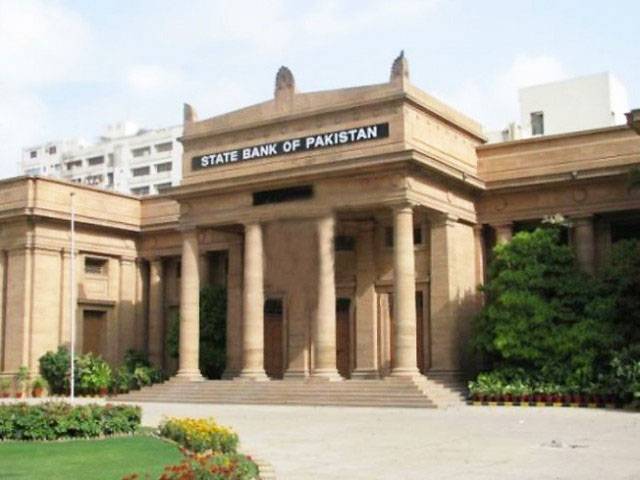KARACHI - The State Bank of Pakistan (SBP) has decided to keep the policy rate unchanged at 10 percent. The governor of central bank announced this while unveiling the first bi-monthly Monetary Policy (MP) for the current fiscal year at a press conference held at SBP head office here on Saturday.
The decision was taken at a meeting of the Central Board of Directors of SBP held here under chairmanship of Governor Ashraf Mahmood Wathra. Henceforth, the board has also decided to publish the summary of minutes of monetary policy proceedings of the board meeting in four weeks.
According to Mr Wathra, economic conditions are certainly better at the beginning of FY15 than a year ago but a detailed assessment of the economy indicates that challenges and vulnerabilities remain. Continuation of prudent policies and reforms are needed to build on positive developments and to achieve protracted stability.
The governor stated that SBP is effectively managing market sentiments by supplementing the monetary policy stance with calibrated liquidity operations in the interbank market, adding that “this has contributed in achieving stability in the foreign exchange market and in building foreign exchange reserves.” This has also facilitated the shift in banks’ investment from T-bills to PIBs, improving domestic debt maturity profile of the government.
Mr Wathra said that despite significant injections by SBP, appetite for liquidity remained sufficiently high in the market. It resulted in higher short-term interest rates, making rupee liquidity more expensive. “This reduced pressure on exchange rate as it discouraged speculative holdings of foreign exchange and made trade financing through foreign currency deposits held by banks more attractive, ” said Wathra.
He said a significant reduction in government borrowings from the banking system is contributing towards low inflationary expectations and has provided necessary space to the private sector to borrow from the banking system. However, persistent energy shortages and deteriorating security conditions hint towards some risks to credit demand.
The bank governor maintained that sustainability of lower government borrowings from the banking system, including SBP, is contingent upon further reduction in the fiscal deficit and continuation of external financing, adding that government needs to watch the fiscal position of FY15 i.e. the revenue side cautiously.
Wathra informed that the growth in domestic debt during FY14 had decelerated to 14.5 percent, which was significantly, lower than the average growth of around 27 percent during the last three years. “This bodes well from the point of view of country’s risk perception and could help in attracting investment in the economy.”
He reminded that increase in external borrowings since February 2014 had provided a much needed respite and short term stability to the balance of payments position. These foreign inflows resulted in a capital and financial account surplus of $6.1 billion which comfortably financed the current account deficit of $2.6 billion and led to a significant increase in SBP’s foreign exchange reserves. By July 4, SBP’s foreign exchange reserves have increased to $9.6 billion.
Mr Wathra said that increase in SBP’s foreign exchange reserves brought about a shift in sentiments in the foreign exchange market and stabilised the exchange rate. “Moody’s Investors Service has revised the outlook on Pakistan’s foreign currency government bond rating to stable from negative.”
According to him, the impetus of positive sentiments together with continuation of IMF program and government’s privatisation plan is expected to result in further strengthening of the external position in FY15. However, sustaining this trend in the medium term, especially in the post IMF program years, would require additional efforts and reforms.
SBP governor said that despite challenging security conditions and energy shortages, the real GDP grew by 4.1 percent in FY14. However, investment expenditures as a percent of GDP have declined, which indicates erosion in economy’s future productive capacity, he added. He said the average CPI inflation in FY14, 8.6 percent, was in single digits for the second consecutive year. For FY15, the SBP expects it to remain in the range of 7.5 percent to 8.5 percent. “However, international oil price uncertainty and unanticipated price shocks pose risks to the inflation outlook.”
Tuesday, April 16, 2024
SBP keeps policy rate unchanged at 10 percent
| Despite security challenges and energy shortages, real GDP grew by 4.1pc in FY14 | Average CPI inflation expected to remain 7.5-8.5pc

Caption: SBP keeps policy rate unchanged at 10 percent
3:25 PM | April 16, 2024
1:17 PM | April 16, 2024
IHC dismisses Bushra Bibi's plea seeking her shifting to Adiala Jail from Bani Gala
4:25 PM | April 16, 2024
Punjab CM visits Tehsil Headquarter Hospital Murree
3:25 PM | April 16, 2024
High-level Saudi delegation in Islamabad to hold meetings with Pakistani leadership
2:07 PM | April 16, 2024
Saudi foreign minister meets PM Shehbaz Sharif
1:17 PM | April 16, 2024
Decision to retaliate against Iran attacks rests with Israel, says Pentagon
1:05 PM | April 16, 2024
Political Reconciliation
April 16, 2024
Pricing Pressures
April 16, 2024
Western Hypocrisy
April 16, 2024
Policing Reforms
April 15, 2024
Storm Safety
April 15, 2024
Democratic harmony
April 16, 2024
Digital dilemma
April 16, 2024
Classroom crisis
April 16, 2024
Bridging gaps
April 16, 2024
Suicide awareness
April 15, 2024
ePaper - Nawaiwaqt
Advertisement
Nawaiwaqt Group | Copyright © 2024





